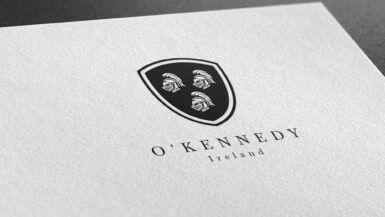The Flynn family name is of Irish origin and has been present in Ireland for centuries. Its Gaelic form, Ó Floinn, where the “Ó” denotes “descendant of,” has allowed the name to endure through Ireland’s tumultuous history.
Etymology and Meaning
The Flynn surname derives from the Gaelic word “flann,” meaning red or ruddy. Hence, the full meaning of Ó Floinn can be interpreted as “descendant of the red or ruddy one.” This was likely a nickname for someone with reddish hair or a ruddy complexion, two common characteristics among the Irish.
Earliest Known Usage
The earliest known usage of the Flynn surname dates back to the 10th century in Ireland. The Flynns were known as ecclesiastical leaders, poets, and warriors in ancient Irish society, contributing significantly to the cultural and political landscape of their time.
Geographic Distribution
Historically, the Flynn surname was prominent in several regions in Ireland, including Connacht, Munster, and Leinster. As centuries passed and migration occurred, the Flynn surname dispersed more broadly across Ireland and eventually into other countries such as the United States, England, Australia, and Canada.
Original Geographic Location
The Flynn family originated in different parts of Ireland. Some of the most ancient forebears of the Flynn family held lands in Roscommon and Clare, while others were settled in Waterford. These regions can be considered the original geographic locations of the Flynn family.
Migration Patterns
The migration patterns of the Flynn family followed those of many other Irish families, characterized by a significant exodus during the Great Famine of the 1840s. Numerous Flynns emigrated to North America, England, and Australia during this period in search of better living conditions and opportunities.
Historical Context
The Flynn family name is intertwined with significant events in Irish history.
Medieval Ireland
During medieval times, the Flynns were recognized for their contributions to ecclesiastical life and Irish literature. They were highly regarded for their poetry, prose, and spiritual leadership.
English Colonization
With the onset of English colonization in the 16th and 17th centuries, the Flynn family, like many other Irish families, endured displacement, anglicization of their name, and other adversities.
The Great Famine
The Great Famine of the 1840s was a significant turning point for the Flynn family, as many members emigrated during this period to escape dire conditions, leading to a broader global distribution of the name.
Notable Irish Bearers of the Surname
The Flynn surname has seen numerous notable bearers throughout history.
Famous Individuals
Some well-known individuals bearing the Flynn surname include Errol Flynn, an Australian-American actor famous for his swashbuckling roles in Hollywood films, and John Flynn, an Australian Reverend who founded the Royal Flying Doctor Service.
Influential Figures
In Irish politics, the name is carried by Pádraig Flynn, a former European Commissioner and Irish government minister. Additionally, Brian Flynn is a notable figure in the world of Irish music.
Variations of the Surname
Spelling Variations
Over time, several spelling variations of Flynn have emerged, including O’Flynn, Ó Floinn, Flinn, and Lynn. These variants often resulted from regional differences and inconsistent anglicization of the original Gaelic name.
Regional Differences
Regional differences in the Flynn surname exist primarily in its pronunciation and spelling, with variations like Flinn and Lynn found in different parts of Ireland and across the globe.
Current Statistics and Distribution
Today, the Flynn surname is widespread, particularly in countries with a strong Irish diaspora.
Frequency and Global Distribution
The Flynn name is most common in Ireland, followed by the United States and the United Kingdom. According to recent statistics, the Flynn surname ranks as the 1,092nd most common surname in the world.
Changes Over Time
Over time, the distribution of the Flynn surname has expanded, particularly aligning with periods of significant Irish emigration. Today, the surname is a common fixture in many parts of the world, far beyond its Irish homeland.
Family Coat of Arms
The Flynn family crest features a striking design set against a blue background. The primary elements include three gold coins and a silver wolf. The blue background symbolizes loyalty and truth, while the gold coins represent wealth, generosity, and prosperity. The silver wolf, a symbol of bravery and perseverance, is prominently displayed, adding a touch of nobility and strength to the crest. This combination of colors and symbols creates a rich and meaningful representation of the Flynn family’s heritage and values.






Leave a reply